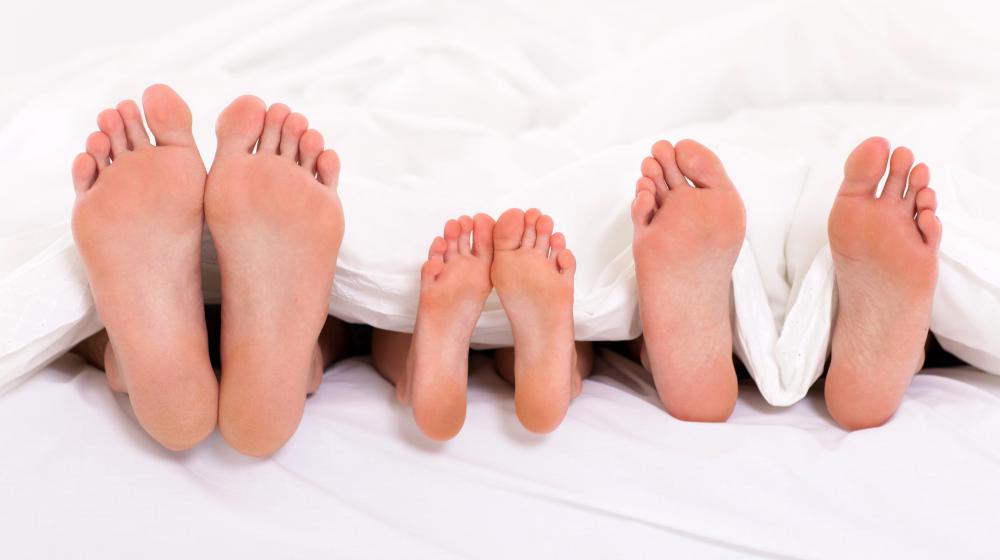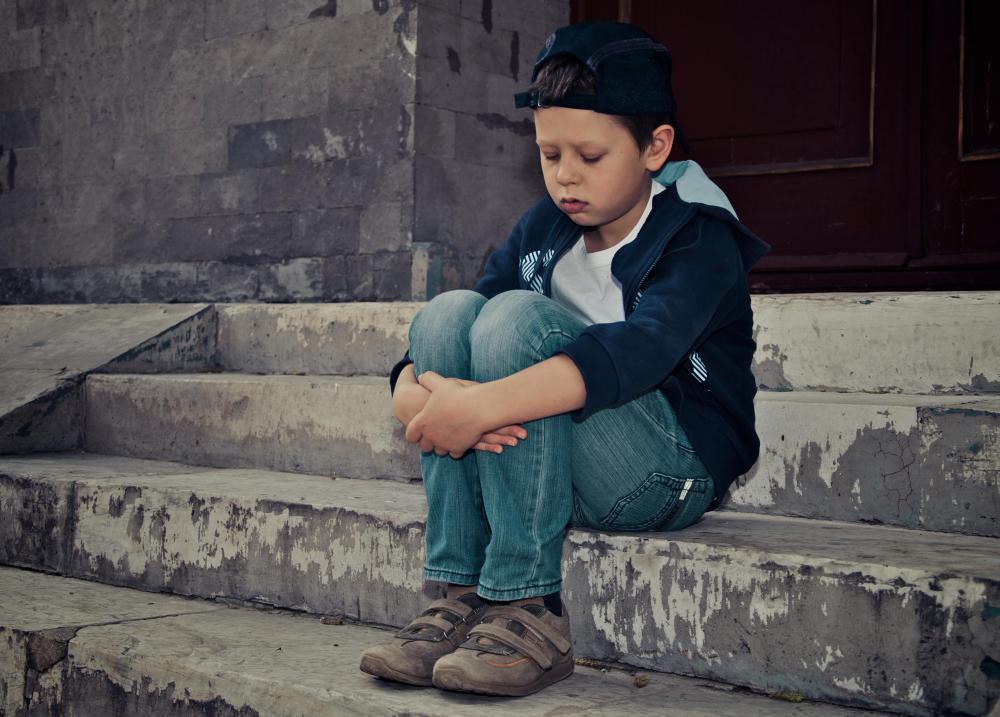At WiseGEEK, we're committed to delivering accurate, trustworthy information. Our expert-authored content is rigorously fact-checked and sourced from credible authorities. Discover how we uphold the highest standards in providing you with reliable knowledge.
What Are the Symptoms of Attachment Disorder?
According to the Diagnostic and Statistical Manual of Mental Disorders, or DSM-IV, an attachment disorder is a psychological disorder in which a child does not or can not develop a healthy attachment to his caregiver. This is not related to other developmental disorders, such as mental retardation, and can often lead to poor social relationships. The symptoms of attachment disorder may vary, depending on a person's age. For example, infants showing symptoms of this disorder may seem unusually disinterested in other people around them, and young children may appear withdrawn, or prefer to be alone. As a child gets older, he may become more defiant or possibly aggressive toward others around him, especially his caregivers.
Many times, symptoms of attachment disorder will be present when an individual is a baby. Babies with attachment disorder will seem somewhat detached from other people and will often seem to prefer being alone. For instance, he may resist, cry, or squirm when someone tries to pick him up. He may also not smile at other's actions, nor will he watch other people as they move about a room.

In babies, a lack of interest in playing can also be another symptom of attachment disorder. Along with showing little interest in toys, he may also not enjoy typical baby games that a parent can play with him. Peek-a-boo or tickling, for instance may be met with disinterest or disdain.
As a child gets older, the signs of attachment disorder may become more prominent. Unlike other toddlers or kids his age, a child with attachment disorder may show little interest in group activities with his friends. Instead of playing ball with a group of children, for example, he might be found hiding out on the edge of the playground, by himself. Although he may watch others, there will generally be no interest in joining them.

When upset, a child dealing with attachment disorder may resist being comforted. He might run away from or become angry with his caregiver, if she tries to give him a hug when he is crying. Depression and intense moods are a couple other symptoms of attachment disorder.
Older children and adults often show the same symptoms of attachment disorder, but there will also likely be other symptoms as well. As an individual gets a little older, aggression towards one's peers and caregivers is one of the more common signs of attachment disorder. Teenagers with attachment disorder are also more likely to be defiant or impulsive.

Besides the inhibited behavior — wanting to be left alone — that many individuals with attachment disorder may show, some may also show disinhibited behavior. This means that they would prefer not to be alone, and may constantly need help with small tasks. Often, these types of sufferers shower complete strangers with unwarranted, inappropriate attention or affection.
AS FEATURED ON:
AS FEATURED ON:


















Discussion Comments
After great deal of reading on the subject, I am convinced I have an attachment disorder because I fit the profile. When I was a child, my mother was either withdrawn and depressed or demanding and angry (she still is). There was little in between. It was stressful growing up with her. She got jealous of my Dad showing me normal fatherly affection so he eventually withdraw it from me because it was easier to do that than arguing with her. I was a twin and she would tell me the story of how she would constantly put me on the floor or pass me onto my grandmother so she could attend to my sister. She also admitted she singled me out for emotional abuse because I seemed more vulnerable that my three siblings.
I was sexually abused as a child by three people, starting as a baby, and found that in primary school I could minimize negative attention by keeping a low profile by withdrawing and absorbing myself in my storytelling imagination. A survival mechanism, I suppose.
My mother also would 'gaslight' by contradicting the truth and playing with my sense of reality. For instance, when I said something she didn't like, she grabbed me around the throat and started choking me. When she asked me later why I don't spend more time with her, I brought this up as a good reason why and she said it was "just a tap on the shoulder". I have had only one close relationship, a husband who left me for another woman and left me thousands in debt he ran up, further adding to my sense of mistrust and isolation.
I prefer my own company because I feel like there's only so much heartache one person can handle before they fall completely apart (although deep down I would love to have care and affection). I have to do what I can to protect myself because it seems like no one else will.
I was always kind of weird in school, and as a result, generally made friends with kids who didn't seem to have any friends. I'd be their friend.
This girl in fifth grade was just way weird, though, and I'm thinking she had attachment disorder. My dad was a teacher and said she had a terrible home life (no details provided, of course), and it would be good if someone made an effort to be nice to her. Enter Crusader Rabbit.
I tried all year to be her friend, and sometimes, she seemed like she appreciated it, but mostly, she wanted to be left alone. I suspect her attachment disorder stemmed from abuse she had suffered.
My sister works in mental health and has worked with some of these kids. She said they are usually either scary or sad. They have few social graces and don't seem to care if they hurt someone else's feelings. There's not usually any malice involved -- they just don't care. Those are the sad ones.
She said the scary ones are malicious and seem to want to take out their lack of attachment on on the world. They know they're different and they resent it, so everyone else has to pay for it. They know the difference between right and wrong, but they are so angry that they no longer care.
She said both groups are usually miserable, and only a few people ever have any kind of positive outcome.
Post your comments